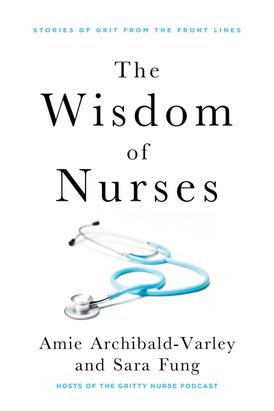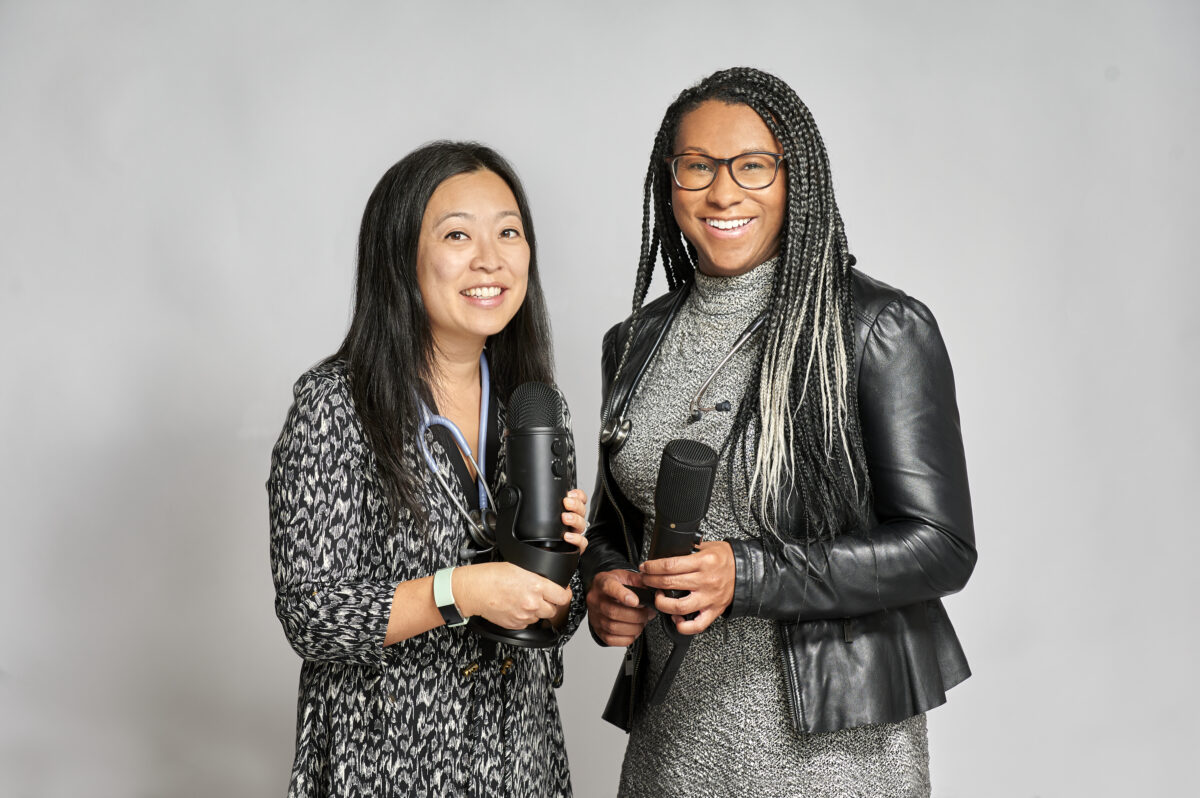Can you name a famous nurse?
That is the penultimate question posed to readers at the beginning of The Wisdom of Nurses: Stories of Grit from the Frontline the debut book from U of T alumni and hosts of The Gritty Nurse Podcast, Amie Archibald-Varley and Sara Fung.
Florence Nightingale, the historic pioneer of modern-day nursing is usually the first person that comes to mind for many people, but Archibald-Varley and Fung, are challenging readers to think beyond the confines of colonialism and rewrite the history of nursing through the lens of the stories they have collected. These stories of resilience, grit, and the impact that nurses have across society, span regions and centuries.
“We wanted readers to come away with a new appreciation and value for the amazing work that nurses have been doing, while also sharing the immense wisdom and capability of nurses that isn’t always shown in the way media portrays us,” says Fung. “We are not always given a voice.”
“We wanted to shift the dialogue away from common beliefs about the profession that glorifies us as martyrs and bring forth a broader perspective to the public about nursing,” adds Archibald-Varley about some of the main objectives for their book which was released on April 2, 2024.
During National Nursing Week, Archibald-Varley and Fung will be at U of T to talk about their book and its impact. The Wisdom of Nurses: A Fireside Chat will take place on May 10 at the Lawrence Bloomberg Faculty of Nursing, with guest moderator Carly Weeks of The Globe and Mail.

Their book is compelling in its ability to bring to the forefront a multi-faceted perspective on nursing by sharing heartfelt first-hand stories from nurses who are working in a variety of different roles, from street nurses to policy leaders, and nurse managers.
Building on their powerful storytelling prowess which has led to the success of their podcast series, Archibald-Varley and Fung, have also included what they refer to as Ghost Stories throughout their book, providing some light-hearted shifts in between heavier topics.
These spine-tingling accounts may leave readers wondering about what goes bump in the night at some GTA area hospitals, but their larger purpose was to pull back the veil on nursing and give readers an inside view into the profession.
“Every nurse has a ghost story. Strange interactions, or full moon experiences, these are all a part of what makes the profession unique,” says Fung.
For the authors, the main goal of the book however, was to make it known that nurses can drive policy forward and innovate in ways that supports not only patients but the nursing profession as a whole.
“We envisioned sharing a well-rounded view of nursing and nursing history by including in our collection of stories, those who were doing amazing work from all corners of the world,” says Archibald-Varley. “History is not history unless we hear all of the stories.”
Fung adds that they had a strong desire to include modern day nurses, who are currently doing great things, including Canada’s Chief Nursing Officer Dr. Leigh Chapman, and Cathy Crowe, a well-known Canadian street nurse and social justice advocate, among others.
“We also included ourselves and referenced the challenges we faced, because we wanted to show others in the profession that you can carve your own path, and you have permission to take charge of the leadership capacity within you,” says Fung.

Telling their own story they admit, was difficult. They have written candidly about their experiences of bullying and harassment in the workplace, and they are also keenly aware that harassment in the profession can be overlooked out of fear of reprisal and a lack of resources for change.
“We were scared to tell our story, but we believed strongly that by sharing it we would be able to let other nurses know that they are not alone. Emphasizing these kinds of experiences and their impact on nurses’ mental health is how we can signal that change is needed and is possible,” says Archibald-Varley.
On the heels of the new Nursing Retention Toolkit, launched by Canada’s Chief Nursing Officer, the book also speaks to the need for advocacy in the nursing profession, and the desire of nurses to feel valued and supported.
“Although we are ranked as the most trusted health care profession, we are also the least respected, and the least valued,” says Archibald-Varley. “My hope is that our book will change the way people think of and view nurses.”
“Now when we ask, can you name a famous nurse, we hope the answer is yes.”
